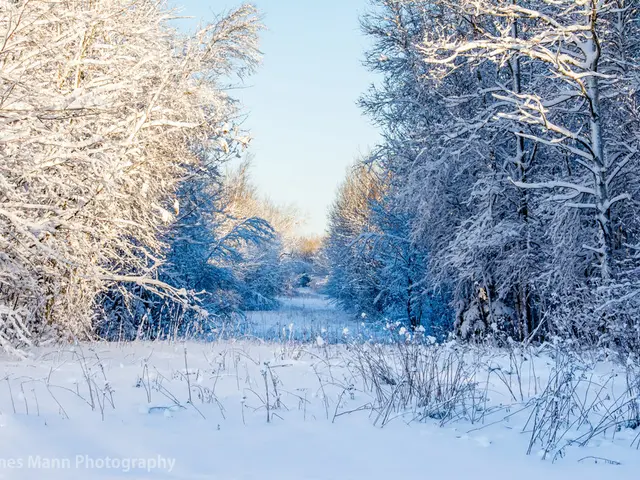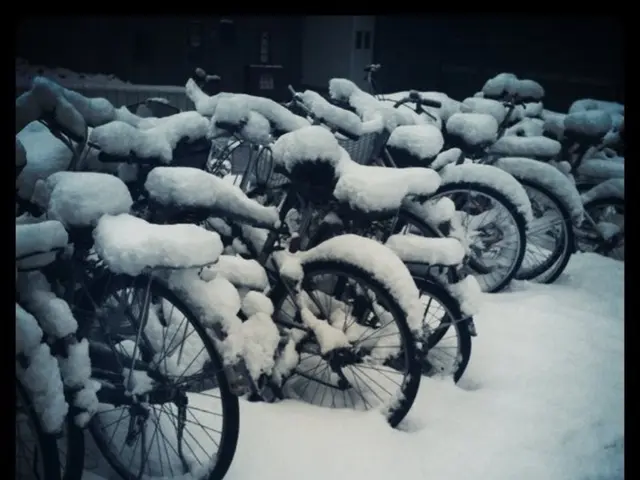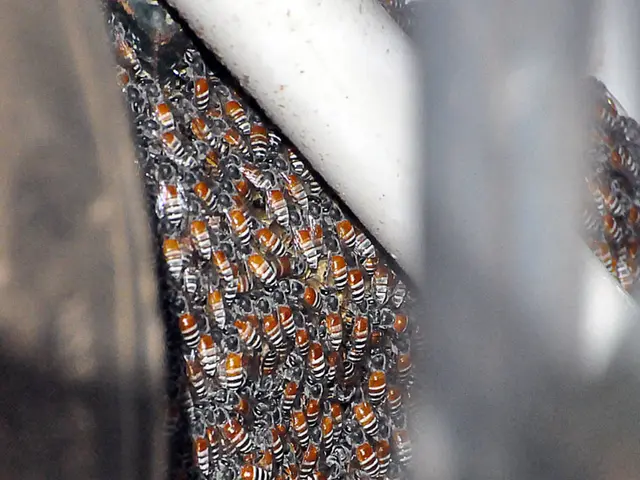Wolves allowed easier culling in EU: a contentious decision
European Legislative Assembly Conducts Vote Favoring Increased Wolf Culling
Wolves in the European Union are now eligible for more relaxed hunting rules. In a surprising move, the European Parliament, in a hastily arranged vote in Strasbourg, decided to lower the wolf's protection status from "strictly protected" to "protected". This decision, though yet to be adopted by the EU member states, is widely anticipated to be accepted. Many countries seek to increase the number of wolves they can shoot to safeguard their livestock.
Following this decision, Germany may update its national law to enforce the lowered protection status of wolves, stated a spokesperson for the Federal Ministry of the Environment. It's important to note that a change to the Fauna-Flora-Habitat Directive (FFH) does not automatically affect German law; alterations to the Federal Nature Conservation Act and possibly the Federal Hunting Act are necessary. In the coalition agreement of the new federal government, it's stipulated that the EU-level decision should be swiftly incorporated into German law.
A legally secure removal?
The revised status means that problematic wolves may be eliminated more easily in the future. However, the spokesperson assured that wolves would remain a protected animal species, and they would not be subjected to general shooting. The increased flexibility is aimed at making it easier for regions experiencing issues with wolves to manage them efficiently.
Criticism of the decision
The Bundesrat had previously called for more lenient shooting. The basis for this change is a proposal from the EU Commission, stemming from earlier demands from the Parliament. Specifically, the FFH is set to be amended concerning the wolf, giving member states more freedom to manage their wolf populations, provided that they maintain a "favorable conservation status" as their primary objective.
Sheep, Cattle, and the EU Parliament
Critics, such as the Greens, contend that the decision lacks scientific justification. They argue that farm animals, particularly sheep, could be more effectively protected without resorting to additional cullings. Sebastian Everding, a member of the European Parliament for the German animal protection party, labels the entire process "scandalous."
"As we face the fastest mass extinction of species in Earth's history, the EU's response to a problem caused by human behavior - grazing without adequate herd protection – is to kill a strictly protected species," Everding asserted. On the other hand, Peter Liese, the CDU/CSU group's spokesman on environmental policy in the EU Parliament, notes, "People are afraid of the wolf. Although there have not yet been any fatal attacks on humans, this is not the case with domestic animals."
A tragic story: Dolly, Ursula von der Leyen's pony
The topic of wolves has triggered strong emotions, with reports of increased conflicts between wolves and livestock. Measures designed to defend livestock from wolves are becoming increasingly bypassed. Incidents of wolves gaining entry into barns are being documented more frequently.
Furthermore, EU Commission President Ursula von der Leyen has experienced a wolf's wrath firsthand. In September 2022, a gray wolf near Hannover in her hometown of Burgdorf-Beinhorn in Lower Saxony killed her 30-year-old pony, Dolly. "Our entire family is devastated by the news," von der Leyen shared at the time.
Controversy over wolf protection
Discussions regarding wolf protection are emotionally charged. Increasing reports of livestock, such as sheep and cattle, being killed are causing significant issues for ranchers. Measures to protect herds from wolves are becoming increasingly ineffective.
The Federal Agency for Nature Conservation's documentation and advice center on the wolf has reported a sharp increase in the number of livestock killed and injured by wolves over the past decade, with 5,727 animals affected by 2023, the majority of which were sheep.
- Wolves
- EU
- Parliament
- Animal Welfare
Insights: The EU Parliament's decision to lower the wolf's protection status from "strictly protected" to "protected" under the EU Habitats Directive reflects a political compromise largely driven by the European People's Party (EPP) and supported by the European Commission. This change, which aims to provide "more leeway for local exemptions," means member states can adopt measures such as limited wolf hunting under strict criteria without violating EU law. While wolves remain a protected species at the EU level, member states can now implement more practical and less bureaucratic legal frameworks tailored to their local circumstances, allowing countries facing significant wolf-livestock conflicts to take more proactive steps in managing wolf populations. The decision, however, is controversial, facing opposition from environmental groups and scientists who warn that downgrading protection could undermine science-based conservation efforts and potentially endanger wolf recovery.
- The European Parliament's decision, despite being widely anticipated, has sparked controversy, especially among environmental groups and scientists who argue that it lacks scientific justification.
- The EU's decision to lower the protection status of wolves is seen as part of a political compromise driven by the European People's Party (EPP) and supported by the European Commission, offering "more leeway for local exemptions" to member states.
- Under the revised status, member states can adopt measures such as limited wolf hunting under strict criteria without violating EU law, allowing countries facing significant wolf-livestock conflicts to take more proactive steps in managing their wolf populations.
- The change in the wolf's protection status may lead to changes in national laws, such as Germany's Federal Nature Conservation Act and Federal Hunting Act, to account for the increased flexibility in managing wolf populations.
- The topic of wolf protection is emotionally charged, with increasing reports of livestock, particularly sheep, being killed or injured, causing issues for ranchers and leading to measures designed to defend livestock from wolves becoming increasingly bypassed.








